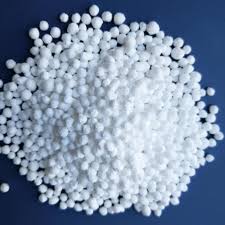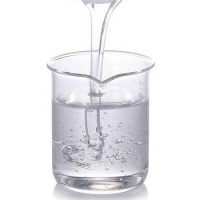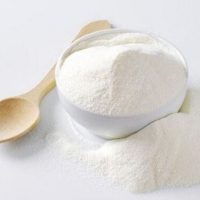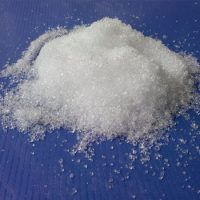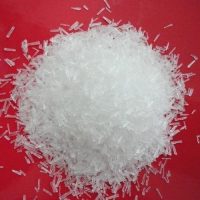Xylitol
- CAS Number: 87-99-0
- Appearance: Solid
- Purity:%
- Made in: China
- Phone Num : +86-2150591759
- E-mail: info@shanghaimetex.com
- Description
- shipping & delivery
- Product Specification
Description
Xylitol is a natural alcoholic sugar that is used worldwide as a low-calorie sweetener as a good food additive, this alcohol has been clinically proven to reduce cavities and prevent tooth decay and gum disease.

Xylitol is found in fibrous vegetables and fruits such as corn and hardwood trees. Our body produces 15 grams of this substance daily. The appearance, taste, and flavor of this alcoholic sugar are similar to regular sugar (sucrose), but it has 40% fewer calories and 75% fewer carbohydrates than sugar.
In addition, xylitol is not easily converted to fat and has almost no effect on insulin levels in the body, making it a great alternative for diabetics, bodybuilders, and dieters. It is also considered safe for pregnant and lactating women, infants, and children.
Physical and Chemical Properties:
Xylitol is available in the form of white crystalline powder. Because it is a refined sweetener, it does not contain any vitamins, minerals, or proteins. Although sugar alcohols are technically carbohydrates, most of them do not raise blood sugar levels and thus are not considered pure carbohydrates.
Its fructose content is zero and it has little effect on blood sugar and insulin, so it does not have any of the harmful effects of sugar. Xylitol is made from a sweetener that tastes like sugar but has about 40% fewer calories.
The most important physical and chemical properties of this compound can be summarized in the following table:
| Chemical formula | C5H12O5 |
| Molar mass (g/mol) | 152.15 |
| Appearance | solid |
| Density (g/cm3) | 1.52 |
| Taste | Relative sweetness equal to sucrose |
| Melting Point (°C) | 92 to 96 (198 to 205 °F; 365 to 369 K) |
| Boiling point (°C) | 345.39 (653.70 °F; 618.54 K) |
| Solubility in water | Very soluble in water |
| Solubility | sparingly soluble in ethanol |
| PH (10 % w/v aqueous solution) | 5 to 7 |
| Color | White |
| Form | crystalline powder |
| Other names | Ribitol, adonitol |
| Chemical Structure Depiction |  |
Similar product: Xanthan Gum
Xylitol Production Process:
The process of producing xylitol is done using a variety of methods. The most important method of producing this sugar alcohol is the chemical and biological method. In the chemical process, through catalytic hydrogenation of xylose produces the sugar substitute xylitol. The chemical process for the production of this alcohol can be harmful to the environment.
Biological processes are often used to produce this substance, which causes by a xylose reaction.
Applications and Uses of Xylitol:
- Xylitol is a component of many dental hygiene products, including toothpaste and mouthwash. Xylitol is not fermentable, meaning that bacteria in the mouth cannot convert it into harmful acid, which can cause tooth decay.
- It is often used to sweeten sugar-free candies such as chocolate as well as chewing gum.
- Other products that may contain this sugar are breath freshener, Cooked products, cough syrup, Herbal vitamins for children and adults, Some peanuts and peanut oil, supplements.
- Some of the laboratory applications of xylitol include standard use in chromatographic assays, analysis of the antibacterial activity of oral biofilms, etc.
Health Benefits of Xylitol:
This sugar alcohol has many health benefits, some of which are:
It has a low glycemic index and has a positive effect on blood sugar:
You can take xylitol in moderation when you have a keto diet or a diabetes diet. This is because it is very low in blood sugar index and has little effect on raising blood sugar. Glycemic index (GI) shows how much a particular substance affects your blood glucose level.
Reduces ear infections:
Research shows that xylitol prevents the growth of harmful bacteria that can cause ear infections.
Increases dental health:
In 2003, scientists found that xylitol consumption was associated with a reduction in harmful bacteria, such as Streptococcus mutants, which play an important role in tooth decay. This substance prevents the formation of cavities in the teeth and reduces the number of harmful bacteria in the oral microbiome. This is one of the reasons why you can use chewing gum containing this sweet-tasting substance and take advantage of its health benefits for your teeth.

May prevent thrush:
Oral thrush refers to prominent, white, sore spots on your mouth or tongue. Oral thrush is usually caused by the fungus Candida Albicans. Xylitol appears to be able to neutralize Candida fungi.
Increases intestinal health:
Animal studies show that xylitol may neutralize harmful bacteria in the gut microbiome. This substance causes probiotics (beneficial bacteria) to grow in your intestines and promote overall intestinal health.
It may slow down the aging process:
Xylitol may increase the production of new collagen.
Supports healthy bones:
The presence of this alcoholic sugar in the diet may lead to an increase in bone volume and bone mineral content, both of which are very important for bone health in the elderly.
Xylitol and Dogs:
According to human experiments, xylitol appears to cause fewer side effects than other alcoholic sugars. This alcoholic sugar is very dangerous for dogs. Although this alcoholic sugar is safe for the human body and is well tolerated, the dog’s body confuses xylitol with sugar. This can lead to increased insulin levels and decreased blood sugar in dogs, which can be very deadly.

Side Effects of Xylitol:
Side effects of consuming this alcohol are rare unless you consume a lot of it, but if you are starting to use this substance for the first time, you may have some problems. Side effects of consuming alcoholic sugars are the same:
- Gas production;
- Blowing;
- nausea;
- Diarrhea;
- Intestinal microbiome problems.
Packing and Storage:
As general storage measures, sources of heat, radiation, electricity, and contact with food should be avoided. Keep away from oxidizing agents and from highly acidic or alkaline materials.
shipping & delivery




